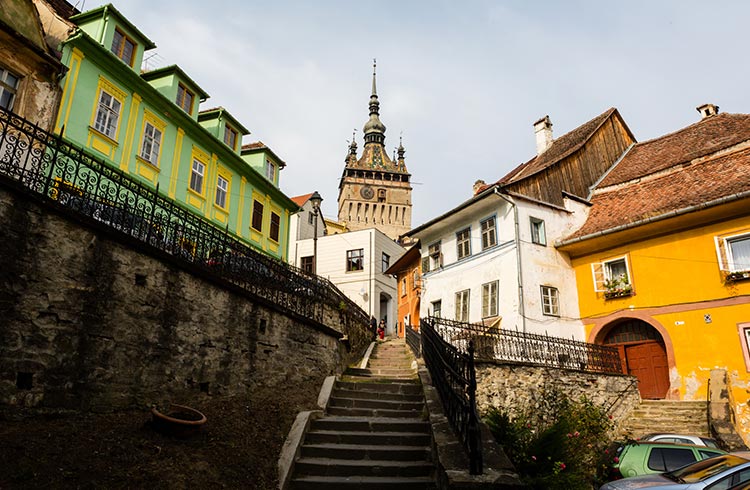How to Stay Healthy While Traveling Romania
Medical care in Romania is of a low standard, and medical supplies are often in short supply. Here's what travelers need to know about staying healthy.
 Photo © Getty Images/Evan Lang
Photo © Getty Images/Evan Lang
Is Romania's medical care high standard?
Medical care in Romania is generally of a low standard. Better quality medical providers are available in the capital, Bucharest and in the larger urban centers. But, in an emergency, identifying them and locating them is no mean feat.
Outside the major urban centers, basic medical supplies are often in short supply.
Prescription drugs and medications in Romania
Most over-the-counter medications and prescription drugs are available in Romania, but may be sold under different brand names. Travelers requiring regular medication should come supplied or ensure that in your prescription, the physician lists the generic medication required, rather than simply prescribing a specific brand name.
For critical medical emergencies in Romania, helicopter services are available. But, outside the major urban centers, response times for emergency services vary.
Rabies risk in Romania
Rabies is common in Romania, but not a major risk to travelers. Although rabies is largely confined to rural areas, to avoid contamination, it is safest to limit your contact with dogs whether you are in Romania's countryside or the cities.
Rabies is transmitted by the bite or scratch of an infected animal. The animal in question may be a dog or any of a number of other animals. In unvaccinated humans, rabies is almost always fatal. Given the high population of dogs and wild animals in Romania, a prophylactic anti-rabies vaccination is recommended for travelers, especially if they intend to spend time in villages, farms or wilderness areas. Check with your travel doctor prior to your trip to see if a vaccination is right for you.
Diseases and illnesses to be aware of in Romania
- The Romanian Health Ministry confirmed the presence of West Nile virus infections in Alba, Bucharest, Cluj, Constanta, Dolj, Galati, Mures, Sibiu and Teleorman. Since there is not yet an effective vaccine for this mosquito-borne disease, use protective measures against mosquito bites: wear long-sleeved clothing at dawn and dusk, do not leave windows open if there is no fly screen in your accommodation, use insect repellent, and avoid stagnant water
- Tick-borne encephalitis is a risk associated with travel in Romania – especially forested areas – where ticks are common and active from spring to fall. If you intend spending a long time in rural areas, vaccination is recommended
- Water-borne, food-borne and other infectious diseases include: tuberculosis, measles, typhoid and hepatitis are prevalent in Romania. From time to time, serious outbreaks occur. Vaccination is an option. Otherwise, avoid raw or undercooked food and in rural areas, boil all drinking water and avoid ice cubes
- Sexually transmitted diseases are prevalent in Romania. Syphilis is more common than in the rest of Europe. In 2005, Romania had the highest incidence of HIV infections in central/southeastern Europe (16,258 cases). Use protection to avoid transmission of any diseases while traveling
- Given the prevalence of STDs and the fact that surviving pediatric AIDS sufferers are reaching the age of legal consent, sexually active travelers are well advised to use a male or female condom.
Going to Romania soon? Get a travel insurance quote below!
Related articles
Simple and flexible travel insurance
You can buy at home or while traveling, and claim online from anywhere in the world. With 150+ adventure activities covered and 24/7 emergency assistance.
Get a quote

No Comments